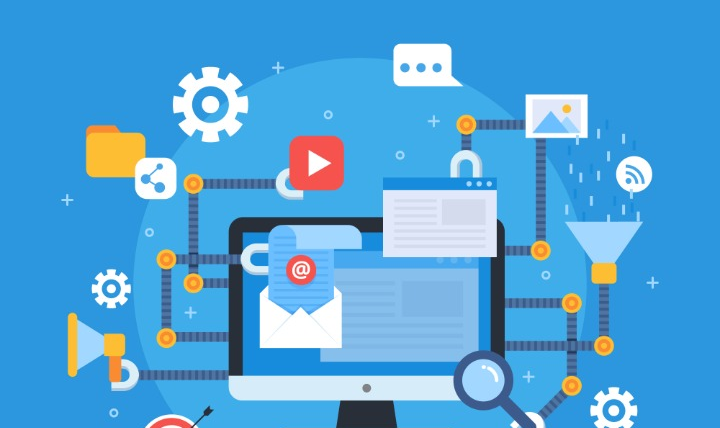In the not-so-distant past, booking an appointment was often a game of phone tag. Imagine you’re feeling under the weather and need to see a doctor. In the past, this would mean picking up the phone, navigating through a maze of automated responses, and then waiting on hold, only to be told that the next available slot is weeks or months away. This process is not only time-consuming but also frustrating, as you’ve gone through many hoops to book an appointment.
The landscape of appointment scheduling has dramatically shifted thanks to the rise of online booking systems. No longer you have to wait for business hours or navigate through the maze; now you can schedule an appointment with just a few clicks, anytime and anywhere. A report by GetApp revealed that 70% of consumers prefer online scheduling for setting appointments, a clear indicator of the digital shift.
Businesses, on the other hand, are witnessing tangible benefits from adopting online scheduling. Automating bookings increases efficiency, reduces no-shows, increases client satisfaction, and provides insights on booking trends. Additionally, it frees up staff from answering booking calls as they can focus on other productive tasks.
Different types of Appointment bookings
Navigating the world of appointment bookings can be quite an eye-opener, as there are several types designed to cater to different business needs and customer preferences. From individual bookings for personal services to group sessions for classes, each type has its own unique features and benefits. Let’s delve into the various types of appointment bookings to understand how they work and where they are best applied.
Individual Appointments
Individual appointments are the most common type, typically used for one-on-one services like professional meetings, doctor’s consultations, beauty treatments, or personal training sessions. In this setup, a customer views real-time availability from your calendar and books an appointment for a specific time slot that is open. This type of booking is straightforward, focusing on a single client at a time, which allows for personalized service and attention.
Group Bookings
Group bookings are ideal for services that can accommodate multiple clients simultaneously, like meetups, fitness classes, workshops, or educational courses. Here, several people can book the same time slot to participate in a group activity. This type of booking is beneficial for businesses looking to maximize their resources.
Recurring Appointments
Recurring appointments are perfect for ongoing services that need to be scheduled regularly, such as weekly therapy sessions, monthly beauty treatments, or routine medical check-ups. Customers can select a preferred day (Monday, Tuesday, etc.) and time (10.30 AM CST) and hook up several appointments at once. This type is convenient for both the customer and business, as it minimizes the need for multiple individual appointment bookings.
On-Demand Appointments
On-demand appointments are a newer type, often facilitated through mobile apps or online platforms, and are typically used for immediate service needs like home repairs, tutoring, or emergency healthcare services. Customers request a service, and the provider responds as soon as possible, making it a quick and efficient way to handle urgent needs.
How appointment booking used in lead generation?
Appointment booking is not just a tool for organizing schedules; it’s also a powerful lead generation tool. By making the process of scheduling consultations or services easy and accessible, businesses can effectively turn interested prospects into potential customers. Here are a few ways appointment scheduling a pivotal role in lead generation:
- Prospecting: When someone visits your website and considers your service, the option to book an appointment right away captures their interest at its peak. This increases the likelihood of converting them into leads.
- Lead Generation: During the booking process, businesses collect contact information and other relevant details from prospects. This information is valuable for future marketing efforts and personalized follow-ups.
- Increase conversion rate: Automated confirmations and reminders not only improve the customer experience but also keep your business top-of-mind, which is crucial in lead nurturing and conversion.
- Targeted Marketing: The data collected through appointment booking can help with more targeted marketing campaigns. Understanding customer preferences and behaviors allows businesses to tailor their outreach, making it more relevant and effective.
- Improve Trust and Credibility: Offering a professional and streamlined booking experience can enhance a brand’s image, building trust and credibility with potential customers.
How does the appointment booking automation work?
The appointment automation process usually involves several steps and key digital assets that work together to manage the booking process from start to finish. Here are some of the key steps:
Step 1: Landing Page
The journey begins with a landing page, which acts as the entry point for customers looking to make an appointment. This page should be clean, easy to navigate, and clearly guide the customer to the booking interface. Information about services, prices, and a visible ‘Book Now’ button are essential components.
Step 2: Smart Calendar System Integration
Upon clicking ‘Book Now,’ customers navigate to a smart calendar system embedded or linked to the landing page. This calendar reflects real-time availability and allows customers to select their preferred date and time for the appointment. The smart calendar syncs with the business’s schedule to prevent double bookings and can adjust availability based on set business hours
Step 3: Collecting Customer Information
After selecting a time slot, customers are prompted to fill out a secure form with their personal information. This form typically requests details like name, contact information, and any specific notes that might be relevant to the appointment. This step can also include custom questions tailored to the service they’re booking.
Step 4: Confirmation
The next step is sending an automated confirmation of the appointment. Here, customers may also encounter an integrated payment system if a prepayment, deposit, or full payment is required for the appointment. For example, hotel reservation systems collect a pre-payment as part of the booking process.
Step 5: Automated Reminders and follow-ups
The automation doesn’t stop at the booking confirmation, it can be extended further sending reminders and follow-ups. For example, an automated reminder email or SMS messages can be sent to the customer as the appointment date approaches, which is crucial for minimizing no-shows. Similarly, automated booking systems can also be configured to send follow-up messages thanking customers for their visit and inviting them to book their next appointment.
Getting Started
If you’re looking to automate your appointment scheduling process, then start by identifying the type of appointment that is suitable for your business—individual, group booking, recurring appointment, etc. Depending on the type of appointment scheduling required, choose the right online booking system that can support the scheduling. The next step is to integrate the booking system with your existing website or app, making the booking process as seamless as possible for your customers. It’s also important to customize the information you collect from customers during booking; this can range from basic contact details to specific service preferences.
Once you automate the core booking process, you can include other advanced features such as automated reminders, reschedules, and follow-ups.
As you can see, this process includes several steps and various assets. If you need any assistance with the automation, please check out the Minutly service catalog or contact us for more information. Get started with a hassle-free appointment booking!








50+ Website features that makes running a business easier
Website with a purpose: How to drive quality website traffic?
Website with a purpose: Create Brand Awareness
Planning your Service
What is a Service Catalog?
Top 10 Essential Sales Service Requests Every Business Should Offer
Sharing your Minutly Catalog
Setting up your catalog